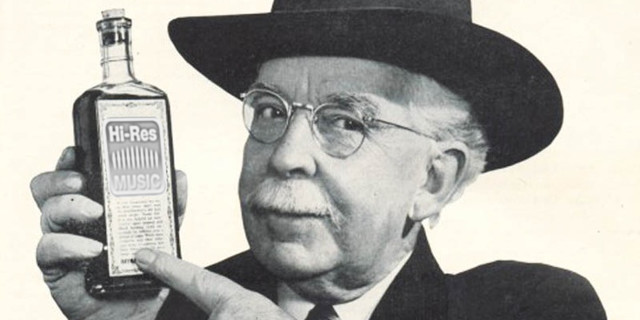MQA, perpetrators of the lossy “hi-res” audio format of the same name, went into receivership in April 2023. This was greeted with laughter and applause even from the audiophiles.
Fortunately, you’ll still be able to pay well over the odds for a 13-bit FLAC — MQA’s IP assets were bought on Tuesday 19 September by Lenbrook, owners of audiophile brands NAD, PSB and Bluesound. They’ve also hired some of the MQA tech and sales teams.
Lenbrook bought “an assortment of significant patents” and the MQA and SCL6 codecs. MQA is equivalent to a 13-bit 48kHz FLAC, but paying swingeing fees to MQA. SCL6 was MQA’s failed attempt to get a low-res hi-res audio format into the Bluetooth standard.
The main source of MQA audio was the Tidal streaming service. Tidal is switching to FLAC — with only a few minor glitches along the way.
As well as being an existing MQA licensee, Lenbrook does have considerable experience straddling the fine line between “very good sound equipment” and “green marker pen on your speaker wires.” Lenbrook has mentioned plans to use the SCL6 codec in PSB Bluetooth headphones.
And taking on only the formats and the staff means they avoid the expense that seemed to have sent MQA Ltd. broke: the ridiculous royalty payments to MQA’s original parent company Meridian Audio — much greater than MQA’s actual income from the formats.


I love (hate) the overlap between the supposed “authentication” of MQA and the blockchain garbage.
Apparently it has some kind of “authentication” marker indicating that “the sound you are hearing is exactly as played in the studio when the music was completed”, which could be interesting to some music nerds. It sounds a lot like the NFT snake oil about giving an authentic connection to artists.
But, “cryptography turns other problems in to key management problems”, and one problem here is that the end user seems to have no way to know who holds the key or who might have signed the file at some later time.
I’m assuming it actually is cryptographic, which is probably too generous: audiophile proprietary formats may well just have a single “it’s authenticated” bit.
Ugh.
MQA has always been shockingly short of detail on how any of it works, yes.